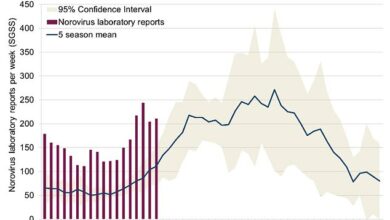Risk of climbing the housing ladder: Children who move only once before age 15 are at risk of depression later in life, experts warn



Moving may be a smart choice financially, but experts warn the changes could have a negative impact on children’s mental health.
New research shows that young people who move only once between the ages of 10 and 15 are 41 percent more likely to become depressed later in life.
And people who moved two or more times were 61 percent more likely to have this condition.
Researchers in the UK and Denmark say it underscores the importance of a stable childhood, and believe their findings could be “the tip of the iceberg.”
Professor Clive Sabel from the University of Plymouth said: ‘We know there are a number of factors that can lead to someone being diagnosed with a mental health condition.

Children who moved frequently as children are more likely to have psychological problems later in life, the study found.

People who moved a lot in childhood were also more prone to suicide attempts, violent crime and substance abuse.
“However, this is the first evidence to suggest that moving to a new neighborhood during childhood is one of these. We think the numbers we see are just the tip of the iceberg.
‘During the formative years, children build their social network through school, sports groups and other activities.
“Anytime they have to adapt to something new, it can be disruptive. So we may need to find new ways to help people overcome these challenges.”
The study, published in the journal JAMA Psychiatry, looked at nearly 1.1 million people born in Denmark between 1981 and 2001.
It tracked how often people moved in the first 15 years of their lives and found that at least 35,000 of them were later diagnosed with depression.
Previous research has shown that people who grow up in deprived neighborhoods are 10 percent more likely to develop depression as adults.
However, this study found that any childhood moving experience, whether to a deprived neighborhood or not, had a much greater effect on the risk of depression.
People who moved frequently as children were at greater risk for suicide attempts, violent crime, and substance abuse.
Although the researchers studied the Danish population, they believe the outcome is similar in other parts of the Western world.
Professor Sabel said: ‘This study highlights the importance of global policies that enable and support stable childhoods, but that also take into account regional and cultural identities.
However, based on our findings, we also believe that certain groups of young people are at increased risk.
‘Young people who live in foster care are often moved several times and may therefore come under additional pressure.
Then there are the children of soldiers, who move regularly depending on where their parents are stationed.
‘This research shows that they and other children need extra help to prevent them from developing a mental illness later in life.’
It is believed that as many as 13 percent of the world’s population suffers from some form of mental illness, with the global economic burden estimated at £4.5 trillion by 2030.




